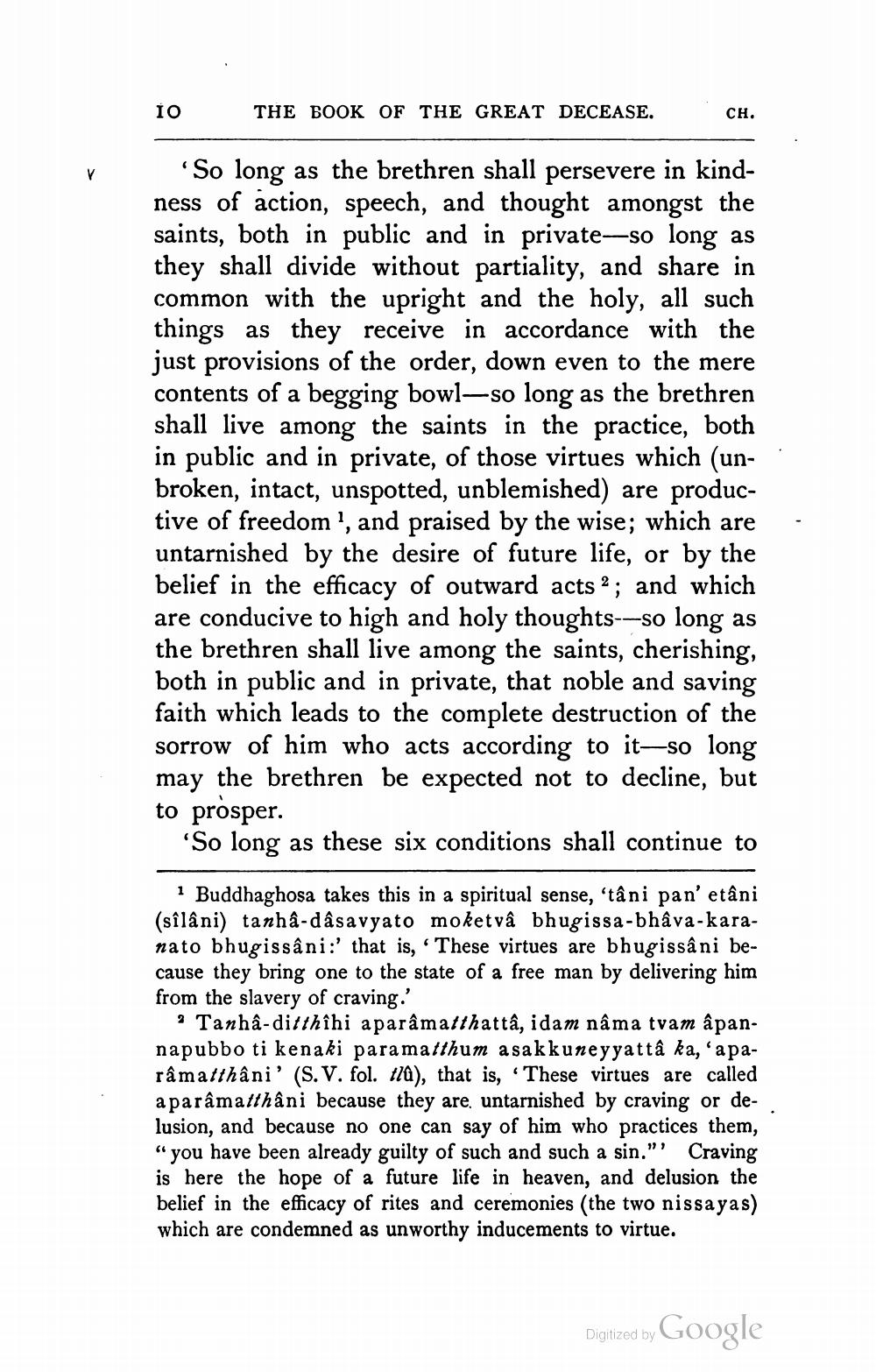________________
10
THE BOOK OF THE GREAT DECEASE.
CH.
'So long as the brethren shall persevere in kindness of action, speech, and thought amongst the saints, both in public and in private—so long as they shall divide without partiality, and share in common with the upright and the holy, all such things as they receive in accordance with the just provisions of the order, down even to the mere contents of a begging bowl-so long as the brethren shall live among the saints in the practice, both in public and in private, of those virtues which (unbroken, intact, unspotted, unblemished) are productive of freedom', and praised by the wise; which are untarnished by the desire of future life, or by the belief in the efficacy of outward acts 2; and which are conducive to high and holy thoughts--so long as the brethren shall live among the saints, cherishing, both in public and in private, that noble and saving faith which leads to the complete destruction of the sorrow of him who acts according to it—so long may the brethren be expected not to decline, but to prosper.
So long as these six conditions shall continue to
1 Buddhaghosa takes this in a spiritual sense, 'tâni pan' etâni (sîlâni) tanhâ-dâsavyato moketvâ bhugissa-bhava-karanato bhugissâni:' that is, 'These virtues are bhugissâ ni because they bring one to the state of a free man by delivering him from the slavery of craving.'
. Tanhâ-ditthîhi aparâmatthattâ, idam nâma tvam âpannapubbo ti kenaki paramatthum asakkuneyyattâ ka, aparâmatthâni' (S. V. fol. tlû), that is, .These virtues are called a parâmatthâni because they are, untarnished by craving or delusion, and because no one can say of him who practices them, " you have been already guilty of such and such a sin."' Craving is here the hope of a future life in heaven, and delusion the belief in the efficacy of rites and ceremonies (the two nissayas) which are condemned as unworthy inducements to virtue.
Digitized by Google




